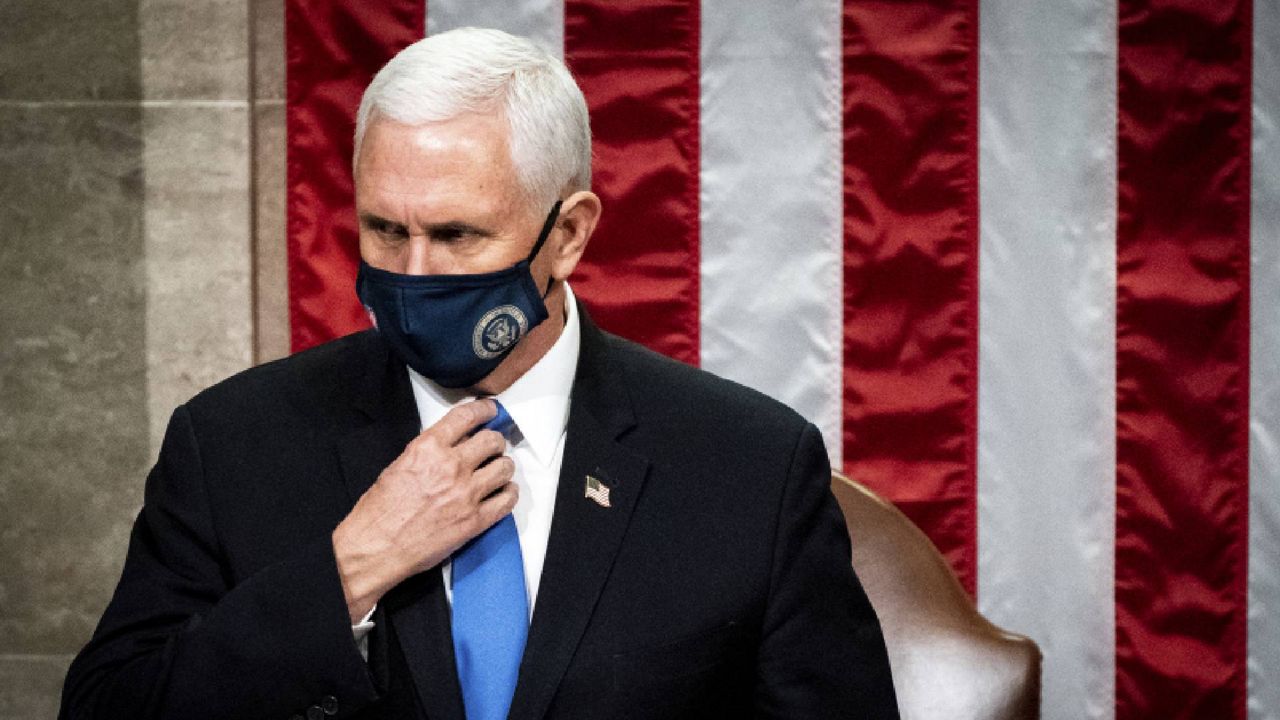On the verge of impeaching President Donald Trump for the second time, the House is first poised to vote on a measure Tuesday that would call on Vice President Mike Pence to invoke the 25th Amendment in order to remove the president from office.
But the vice president told House Speaker Nancy Pelosi that he will not take such an action, seemingly putting Congress on a path to impeach the president Wednesday.
"I do not believe that such a course of action is in the best interest of our Nation or consistent with our Constitution," Pence wrote in a letter to Pelosi Tuesday night.
Pence went on to urge Congress to “avoid actions that would further divide and inflame the passions of the moment.”
The letter came as House lawmakers gathered to consider the measure, sponsored by Representative Jamie Raskin (D-MD), and it’s expected to pass with a Democratic majority.
Still, the move is largely symbolic, since Congress does not have the power to remove a president under the amendment. Democrats previously said it’s the last chance for Pence to act in response to the president’s role in the deadly insurrection at the Capitol last week before they pursue impeachment.
“We are further calling on the Vice President to respond within 24 hours after passage,” House Speaker Nancy Pelosi wrote in a statement Monday. “As our next step, we will move forward with bringing impeachment legislation to the Floor. The President’s threat to America is urgent, and so too will be our action.”
The 25th Amendment offers a path to temporarily transfer power from the President to the Vice President if the president is “unable to discharge the powers and duties of his office.”
Section 4 of the 25th amendment allows for the vice president and a majority of the Cabinet to declare a president unfit for office, and the vice president then becomes acting president. This section has never been invoked.
Members on the House Rules Committee discussed the measure in a tense meeting earlier Tuesday.
“We can all agree that the conduct of the Executive Branch fell dramatically below the constitutional standards set forth for the president,” Rep. Raskin (D-MD) said.
“This resolution is misguided and inappropriate for this branch to pursue,” said ranking member Rep. Tom Cole (R-OK). “[It is] a transparent attempt to pressure the vice president into performing a duty he does not believe is necessary at this time.”
In a heated exchange, Rules Chair Jim McGovern (D-MA) asked Rep. Jim Jordan (R-OH) to explicitly state that President-elect Joe Biden won the presidency in a fair election.
“I’m asking you to make a statement that the election was not stolen,” McGovern said. “So Joe Biden won fair and square?”
“He won the election,” Jordan said, refusing to outright reject the notion that the election was stolen.
“But there are serious problems with this election that deserve an investigation,” he later added.
Vice President Pence is not expected to heed the House’s call to invoke the 25th Amendment. However, on a call with governors Tuesday, he admitted that "our time" in the White House is coming to an end, and that the Trump administration is working "diligently" with Biden's team, promising a "seamless transition."
On Wednesday, lawmakers will then move to consider an article of impeachment that accuses the president of “incitement of insurrection.”
Rep. David Cicilline, a lead sponsor of the measure, said he now has 217 co-sponsors on the bill, setting up for a Democratic majority to vote in favor of impeaching the president, with a handful of Republicans potentially joining them. Three Republican members of the House have already said they will support impeaching the president.
What remains unclear is how quickly House leaders would send the article to the Senate, and, when they do, what a trial would look like if it happens after President Trump leaves office.



